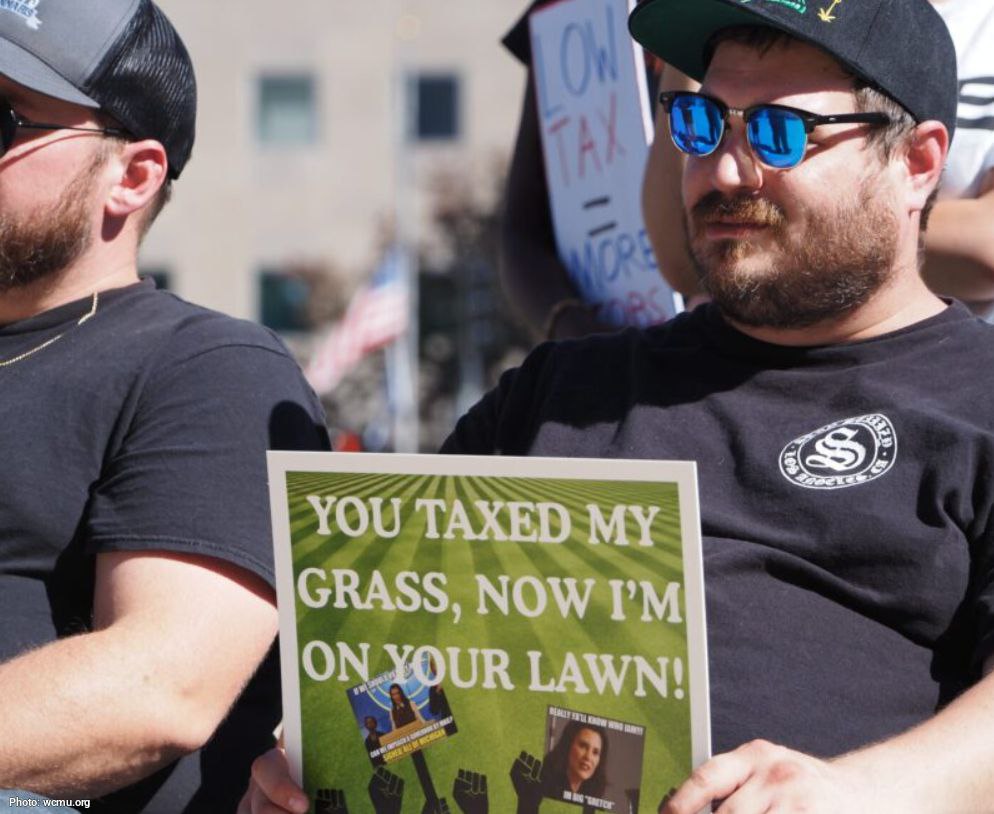Michigan Senate Approved 24% Wholesale Cannabis Tax
LANSING – In a late-night session that stretched into the early hours of Friday, October 3, 2025, the Michigan Senate gave final approval to a sweeping state budget that includes a new 24% wholesale tax on Cannabis products, marking one of the sharpest increases in the industry’s history. The measure, embedded in a $81 billion spending plan for FY 2026, now heads to Gov. Gretchen Whitmer’s desk for her expected signature, setting the stage for implementation on January 1, 2026.
The tax targets wholesale transactions between licensed growers, processors, and retailers, layering onto Michigan’s existing 10% retail excise levy and 6% general sales tax. For a typical consumer purchase, this structure pushes the combined rate to roughly 40%, vaulting the state from one of the nation’s lowest-tax Cannabis markets to among the priciest, just behind California and Washington. Lawmakers project the wholesale levy alone will generate $420 million annually, directed straight to road and bridge repairs, a priority for Whitmer’s administration amid Michigan’s chronic infrastructure shortfalls.
Passage came after weeks of tense bipartisan talks between the Democrat-controlled Senate, Republican-led House, and the governor’s office. The Senate vote split 19-17, with four Republicans joining 15 Democrats in support; the House followed suit 56-44. Senate Majority Leader Winnie Brinks, a Democrat from Grand Rapids, called the compromise “the art of what’s possible,” noting it balanced competing demands for schools, higher education, and transportation without derailing the broader budget. Without the Cannabis revenue, negotiators warned, the deal could have collapsed, risking a partial government shutdown after the current temporary budget expires on October 8.
For Michigan’s Cannabis sector, which generated $3.27 billion in sales last year and supports over 47,000 jobs, the hike arrives at a precarious moment. Operators, already navigating a post-pandemic slowdown and the exit of major multistate players like PharmaCann, view the added burden as a direct threat to profitability. “This undermines the progress in one of the country’s strongest markets,” said Rodney Holcombe, vice president of public policy at supply-chain platform LeafLink. He pointed to shrinking margins and warned that elevated prices could erode legal sales, boost illicit trade, and ultimately reduce overall state revenue, a pattern seen in high-tax states where black-market activity has rebounded.
Critics in the industry and advocacy circles echo those concerns with data in hand. Nearly a third of Michigan’s Cannabis revenue stems from out-of-state buyers drawn by competitive pricing, according to the Michigan Cannabis Industry Association (MCIA). Robin Schneider, the group’s executive director, estimates that a 40% total tax could slash those border sales, leaving local businesses to absorb the hit. John Abraham, co-author of the 2018 voter initiative that legalized recreational use, went further in a recent radio interview, labeling the tax “a betrayal” that risks driving consumers underground and undoing years of regulatory gains.
Even some lawmakers voiced reservations during floor debates. Sen. Jeff Irwin, a Democrat from Ann Arbor who voted against the bill, likened it to California’s model, which has struggled with enforcement costs and persistent illegal sales. “We just adopted a high-tax approach that drives people back to the black market,” Irwin said. On the Republican side, Sen. Jonathan Lindsey of Coldwater predicted dispensary closures and job cuts, arguing the industry deserved better after contributing $331 million in excise taxes alone last year.
Supporters, however, frame the tax as a pragmatic fix for fiscal realities. Sen. Ed McBroom, a Republican from Vulcan who crossed party lines to back the measure, argued that Cannabis legalization promised more revenue than it has delivered so far. He suggested the hike could “right-size” the market while curbing cross-border shopping that burdens rural communities with traffic and related nuisances. Whitmer’s office has long eyed adult-use Cannabis as a funding stream for roads, initially floating a 32% rate earlier this year before settling at 24% in negotiations. Brinks added that alternatives, like a nicotine tax, fell short of the votes needed.
A closer look at the numbers reveals the gamble. Michigan’s current low-tax setup has fueled rapid growth since 2019, with sales tripling in four years and outpacing all but California. But elasticity studies from other markets show demand drops 10-15% for every 10-point tax increase, potentially offsetting $100 million or more of the projected $420 million haul if consumers balk or shift to untaxed sources. Karen O’Keefe, director of state policies at the Marijuana Policy Project, highlighted the disparity: At 40%, Cannabis faces a far steeper burden than beer, taxed at under 1% per gallon. This could invite federal scrutiny too, as the IRS has cracked down on excessive state levies in emerging industries.
Legal fights loom large. The MCIA is weighing a lawsuit, contending the tax amends the 2018 voter-approved law without the required three-fourths legislative supermajority. Schneider said the group is exploring an emergency injunction to pause rollout, citing precedents that safeguard ballot measures. If courts side with challengers, the tax could unravel, forcing lawmakers back to the table.
As Michigan’s Cannabis operators brace for 2026, the tax underscores a broader tension: states’ hunt for quick revenue against an industry’s push for stability. Short-term road fixes may come at the cost of long-term market health, but adaptation has defined this sector from the start. Expect operators to innovate through efficiency gains or new product lines [to weather the strain], while watchdogs monitor for the black-market signals that could test enforcement budgets. For now, the ballot box’s original vision hangs in the balance, a reminder that policy tweaks carry real-world weight in a business still finding its footing.



































